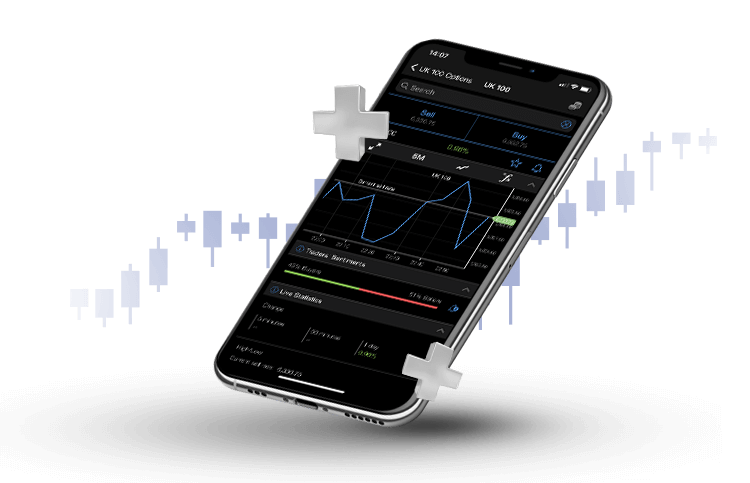Ways to Trade the FTSE100
The FTSE100 (UK100) is a collective index of the London Stock Exchange's largest 100 companies by float-adjusted market capitalization. The list is compiled by the London Stock Exchange Group, not a brokerage house like some mutual funds or ETFs.
In order to recognize this list as a tradeable instrument, traders must go to a brokerage house who may offer a FTSE100 mutual fund or ETF.
Trading on the FTSE100
One way to recognize the benefits of trading on the FTSE 100 index without needing to invest in a fund or purchase the underlying assets is by trading CFDs. While funds are focused on long term investment, CFD traders prioritize short-term trades with rapid executions and the ability to open leveraged positions.
On the Plus500 platform, there are two options for trading CFDs on the FTSE100:
- Futures Contracts- These contracts are traditionally based on agreements between commodity producers and buyers. Modern trading allows for instruments, such as the FTSE100, to be sold as a futures contract as well. Traders can speculate on what the value will be on an agreed upon date, usually the end of the month.
Additionally, with CFDs, open futures positions automatically roll over to the next contract. - Options- Options contracts are traded on the value of a right to buy, similar to a futures contract. These are highly volatile instruments that offer traders to open positions related to the asset at a potentially lower price. They are tools for advanced traders and you can read more about them here.

Illustrative prices.
Advantages of Trading FTSE100 CFDs
Leverage
Leveraged trades give traders the opportunity to recognize increased exposure to an instrument by putting down just a fraction of the transaction value.
For example, if the UK100 offers 1:20 leverage, that means that traders can gain 20X the exposure to FTSE100 futures. They only place 5% of a trade’s value aside at the time of opening their position. While this comes with a large potential for gains, it also holds an equal amount of risk.
With only 5% equity required to open the position, traders must remain aware that they are still exposed to the full value of the position bringing equal potential for profit or loss.
Rapid executions
Mutual Funds and ETFs are traded on the open market by various financial institutions. This causes delays and potentially high levels of slippage when executing a trade. These delays can range from up to a few minutes to the end of a trading day when fund values are recalculated.
When trading CFDs with Plus500, position executions are completed instantly or within seconds. This allows traders to open a position on the real-time value on their screen, giving them more predictability in the opening price of their trade.
Other ways to trade
Other ways to trade on the FTSE100, as mentioned above, are with ETFs or mutual funds that track the movement of the index. These often come with fees and restrictions such as limiting when transactions can be executed.
Realizing profits from CFDs
Profit can be realized when trading CFDs by going long or short on an instrument, such as Plus500’s UK100. By going long, a trader is opening a ‘Buy’ position that they hope will rise in value, allowing them to profit from the price difference between the trade’s opening price and a higher future price.
Going short means that the trader opens a ‘Sell’ position, hoping for the position to drop in value between the time they open and close their trade.
CFD trading comes with a high level of risk as well. Should the position of an instrument move contrary to the trader’s desired outcome, such as rising when they opened a ‘Sell’ position or dropping after opening a ‘Buy’ position, the trader will incur a loss in the value of the difference.
The FTSE100 has become a popular instrument that is relied on as a benchmark by traders around the globe. By placing trades based on FTSE100 futures, such as on the Plus500 platform with the instrument UK100, traders are exposing themselves to the movements of the index without needing to carry the risks that come with owning the underlying assets.
